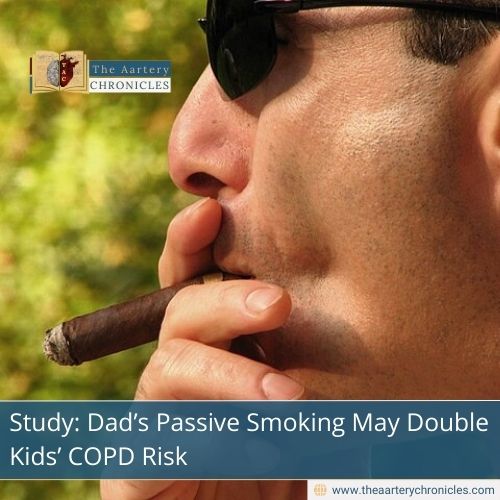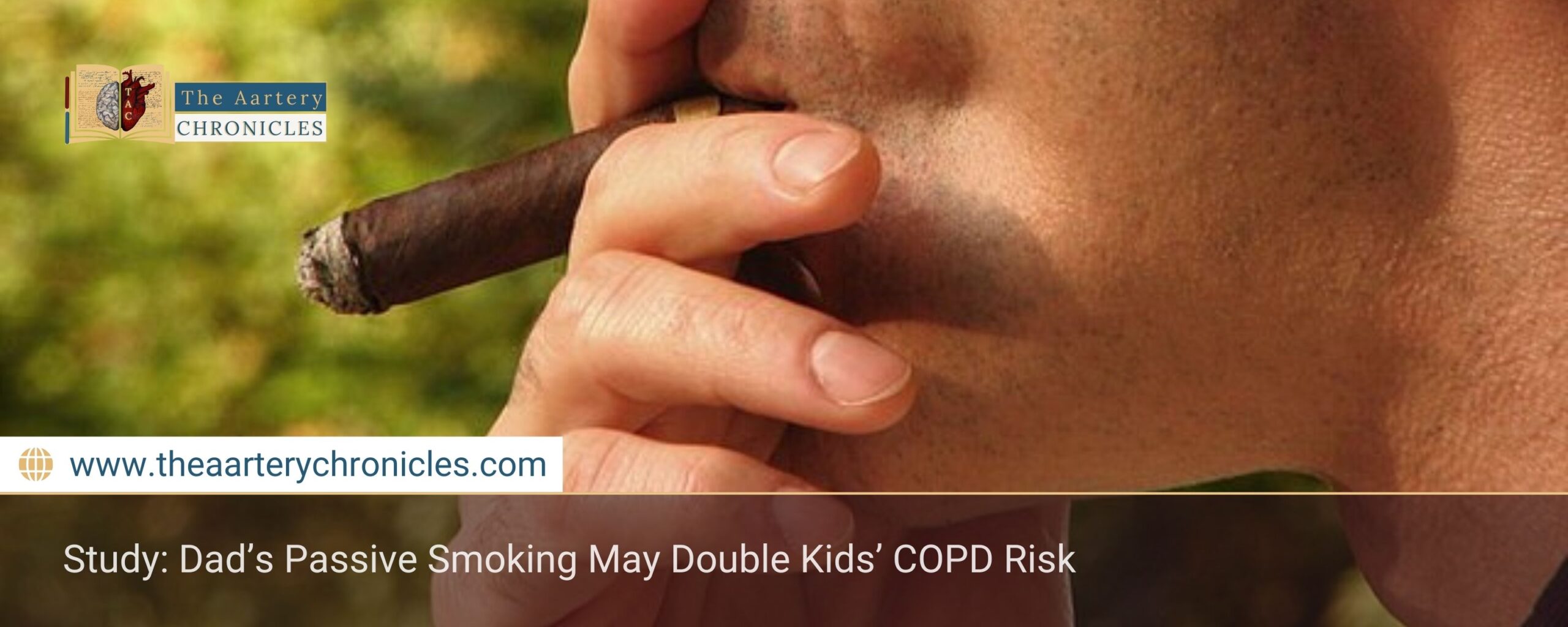

Study: Dad’s Passive Smoking May Double Kids’ COPD Risk
Smoking doesn’t just damage the lungs of the person holding the cigarette; it can leave a lasting imprint on the health of future generations. A new study published in the journal Thorax has revealed that a dad’s childhood passive smoking may contribute to poor lifelong lung health in his children, raising their risk of chronic obstructive pulmonary disease (COPD).
How Passive Smoking in Childhood Affects the Next Generation
Passive smoking, or secondhand smoke exposure, is already known to harm children who grow up around it. But this research takes the concern further, showing that a father’s exposure to smoke before he even becomes a parent can influence his children’s lung function decades later.
The findings suggest that when a boy is regularly exposed to cigarette smoke in his home during childhood, this could disrupt his biological development in a way that carries forward to his own kids.
What Is COPD and Why Does It Matter
COPD, or chronic obstructive pulmonary disease, is a group of progressive lung conditions that includes chronic bronchitis and emphysema. It is one of the top three leading causes of death worldwide, claiming around 3 million lives every year.
Poor lung function early in life is a major risk factor for COPD. According to researchers, the impact of a dad’s childhood passive smoking could accelerate this decline in his children, leading to earlier and more severe breathing problems.
The Study Behind the Findings
The study drew on data from the long-running Tasmanian Longitudinal Health Study (TAHS), which tracked more than 8,000 children into adulthood. Over the decades, participants underwent repeated lung function tests (measuring FEV1 and FVC) and filled out detailed health questionnaires.
By 2010, researchers had information from 890 father-child pairs, including whether fathers had been exposed to smoke during their own childhood (before age 15). This allowed scientists to directly compare the smoking history of fathers with the long-term lung function of their children up to age 53.
Key Results
- Two-thirds of fathers (69%) and over half of children (56.5%) reported being exposed to passive smoke in childhood.
- Nearly half of children (49%) had smoked themselves by middle age, and just over 5% had developed COPD.
- Fathers exposed to secondhand smoke as children had kids with a 56% higher chance of below-average FEV1 (a key measure of lung capacity).
- These children were also twice as likely to develop COPD by age 53.
- The risks were even greater if the children themselves also grew up around smoke, creating a compounding effect.
Key Results
- Two-thirds of fathers (69%) and over half of children (56.5%) reported being exposed to passive smoke in childhood.
- Nearly half of children (49%) had smoked themselves by middle age, and just over 5% had developed COPD.
- Fathers exposed to secondhand smoke as children had kids with a 56% higher chance of below-average FEV1 (a key measure of lung capacity).
- These children were also twice as likely to develop COPD by age 53.
- The risks were even greater if the children themselves also grew up around smoke, creating a compounding effect.
Why This Matters for Families
“This is the first evidence showing that a father’s passive smoke exposure during childhood, not just active smoking, can influence the lung health of his children well into adulthood,” the researchers explained.
They also highlighted that passive smoke exposure is alarmingly common, affecting around 63% of adolescents, compared with just 7% who actively smoke. This underscores how intergenerational health risks can quietly build up in families and communities.
Conclusion
The study carries a strong public health message: while the biological impact of dad’s childhood passive smoking cannot be reversed, fathers today can help break the cycle. By avoiding smoking around their own children, they may reduce the chance of passing on respiratory harm to the next generation.
Source: Inputs from various media Sources
I’m a pharmacist with a strong background in health sciences. I hold a BSc from Delhi University and a pharmacy degree from PDM University. I write articles and daily health news while interviewing doctors to bring you the latest insights. In my free time, you’ll find me at the gym or lost in a sci-fi novel.
- Priya Bairagi
- Health News and Updates,People Forum
- 4 September 2025
- 15:00








